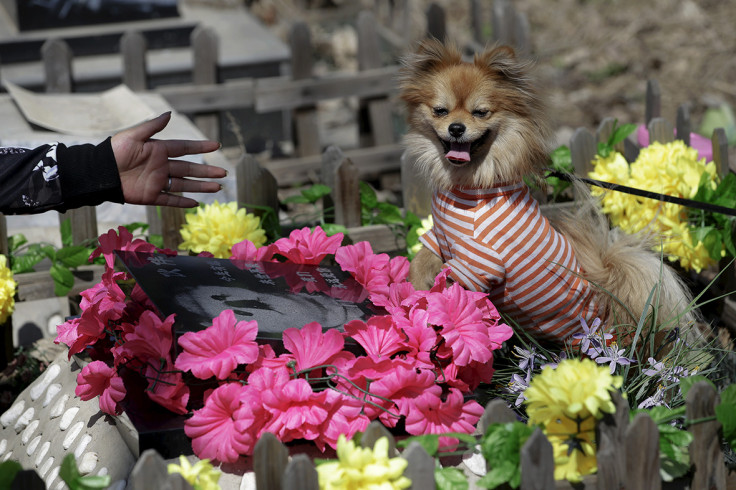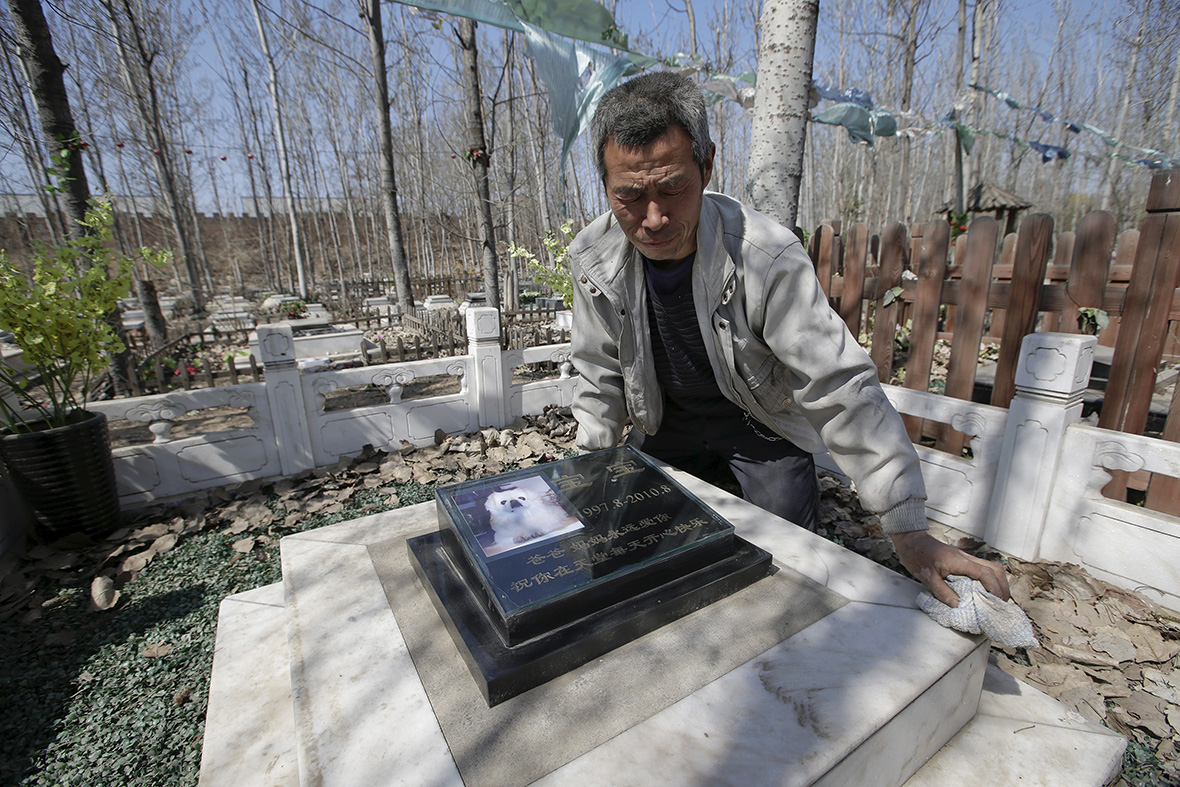China: Visitors pay their respects at Baifu Pet Cemetery ahead of Tomb Sweeping Day
China will be celebrating the Qingming tomb-sweeping festival on 4 April, which sees pet-owners paying respects to their deceased animals by cleaning their tombs and gravestones.
On the outskirts of Beijing, Baifu Pet Cemetery already holds over three thousand graves of pets including dogs, cats, chickens and even chinchillas. Yet Chinese pets have not always been treated with such importance. When under the ruling of Communist Chairman Mao Zedong, raising a pet in China was considered a bourgeois pastime and was banned. Today, having a pet is considered a symbol of financial success.
Chinese pet owners consider their animals as equals, and often visit the cemetery with family members. They bring decorations to place on the graves such as flowers, food – and even photographs with poignant messages.

Groundskeeper and gravestone designer Zhang Youwang explained that the cemetery was founded in 2005 and is the first of its kind, filling in a much-needed space for the growing demands of China's increasing number of pet lovers.
"For those who do not raise dogs or pets, it's difficult for them to understand. [They ask] how could people treat animals in this way? They're just like people, they are people, it's equal, they're all the same. So when [the animal dies], they need to come visit their grave even more often than a human's [grave]. Why? Dogs are so loyal to people. They have thoughts, even about people. Good thoughts, bad thoughts--they have them all," he told Reuters.



A single plot of land for a grave site at Baifu can be rented for a lease of 30 years, with a starting fee from 2,000 to 5,000 yuan (£214.95-£537.36) plus an additional fee of 50 yuan (£5.37), which must be paid yearly. Baifu cemetery also provides gravestones that begin at 2,000 yuan (£214.95) but can go as high as 20,000 (£2149.46). They also have their own cremation services.












© Copyright IBTimes 2024. All rights reserved.






